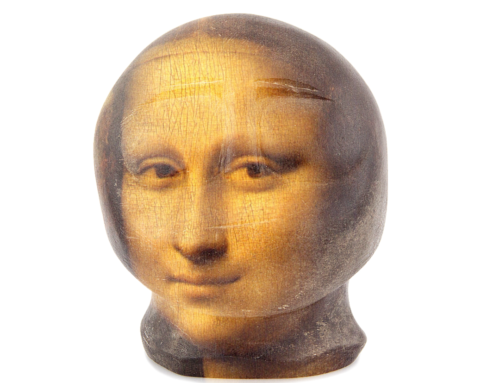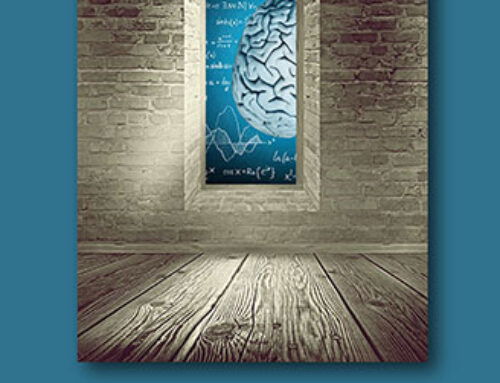Times change, discoveries happen, predictions become irrelevant.
My First Prediction (1949): Surprisingly Wrong!
I was nine in 1949 when we moved from Philadelphia to Los Angeles. After a month or so in a hotel my family finally settled on a house. Finally, moving day, dawn of a new life with a yard in sunny LA! I’d looked forward to what my room would be like and whether it would be different from Jephta’s, my older sister. But now, 74 years later, it strikes me while my expectation had focused on my new room, that was not the important change for me. While my prediction of a special room, bigger and better than my old one in our Philadelphia apartment, was realized, that was not what I had predicted to be a game-changer for me. What sent me into a tailspin affecting my way of life was something I’d never heard of before; it was a cumbersome piece of furniture in the living room with a lid that opened halfway and exposed a glass screen. What the hell was that? The strange machine had switches of some sort which begged to be fiddled with, so I accommodated and…my god! The Lone Ranger, masked as always, appeared galloping on his white horse, Silver, and there was his partner, Tonto, as well! My favorite radio program, the only one my mother let me stay up late for. And here it was before my eyes, alive.
Granted I was nine and I’d never heard of television. Yet, in retrospect, that was my first lesson on how expectations – predictions – miss the mark on what’s important because of what we didn’t know at the time.
Non-Overlapping Cultures (1959): Science and Humanities
Which brings me to C. P. Snow in his 1959 Rede Lecture, The Two Cultures and the Scientific Revolution, which famously put the humanities and the sciences in different, non-overlapping spheres of knowledge of Western society. Snow argued that this separation of cultures was a hindrance to solving the world’s problems, implicitly predicting that merging humanities with science would lead to their solutions. Although this was debated extensively at the time, Snow’s prediction based on what he knew then was not unreasonable.
Snow had no way of knowing either the mind-blowing advances in science or the greater general exposure of society to humanities since 1959. Today, both worlds crosstalk extensively: in the science sphere – computers, medical treatments, energy utilization, transportation (GPS!), advances in biology (genetics and cloning), physics (the atom and quantum theory), astronomy (the Webb Telescope) – are familiar throughout society to some extent; in the humanities sphere – education, the influence of television, social media, the proliferation of books, articles (magazines), economics, the news media, politics, art (long lines create difficulty to obtain tickets for exhibitions) – have blossomed and are mainstream. Of course, pockets of ignorance remain in every discipline, as they always will. Nonetheless, the general exposure to society at large to science and many topics, including the poorly defined ‘humanities,’ has, I believe, overlapped Snow’s two cultures. Yet, how many of the world’s problems have been solved? Few, it seems, if any. Why not?
Changing World Visions
Contrary to expectations of what was known earlier, greater exposure and overlapping science with humanities in a general sense have led to a new vision of the world and of ourselves. Earlier predictions have become moot.
Consider the following. The uncertainty principle, including wave–particle duality, is a scientific concept derived from the findings that the position of a particle (e.g., a photon) can be determined under one set of conditions, although it is also present everywhere as a wave under another set of conditions. Even this bit of science, although technical, has infiltrated conceptually general awareness, leading to new, unexpected questions. A New York Times article by S. I. Rosenbaum discusses how bringing in science to everyday life makes many “feel there are multiple realities and we’re stuck in the wrong one.” How about that!
Similarly, the astounding new abilities to engineer genes are widely known beyond scientists. While such advances in manipulating genes promise to eradicate dreaded diseases, it has also led to new fears about playing “God”; not to mention anxiety over possible long-range problems. Is it safe to eat vegetables that have been protected from microbial infection by genetic engineering?
Discoveries Introduce New Problems
New discoveries change outlooks and directions and introduce new problems, instigating unexpected pathways for the future. Think of the Oscar-winning movie this year, Everything Everywhere All at Once. At first, I thought it was confusing, crazy, unwatchable. Then I watched it again and found it interesting, very much so. Clearly, the Oscar award committee thought so too, and aren’t they a reflection of society? So much confusion, so many worlds colliding, leading Rosenbaum to bring up “the idea that there are multiple universes, each containing a different version of you.”
Does the overlap of science and humanities really lead to solutions of the world’s problems, or does it, as Rosenbaum questions, make us “risk becoming detached from the world we can see and touch?”
Changing Landscapes: Predictions Moot
The point isn’t whether there is one or numerous, distinct universes, or what the role of politics and/or religion has in genetic engineering. It’s that reasonable predictions for the future seldom come true because new discoveries constantly change the landscape and tilt the way we predict the future. From the viewpoint of science, discoveries highlight the importance and impact of basic science; from the viewpoint of general knowledge and the humanities, awareness of new developments in all fields, including science, enlightens and enriches our life.
So, are science and humanities in separate universes? Of course not, at least not today. Will that solve problems that appear intractable? Some, maybe, unpredictably. Will some of our predictions of the future come true? Probably, but not necessarily how we thought they would.






Leave A Comment